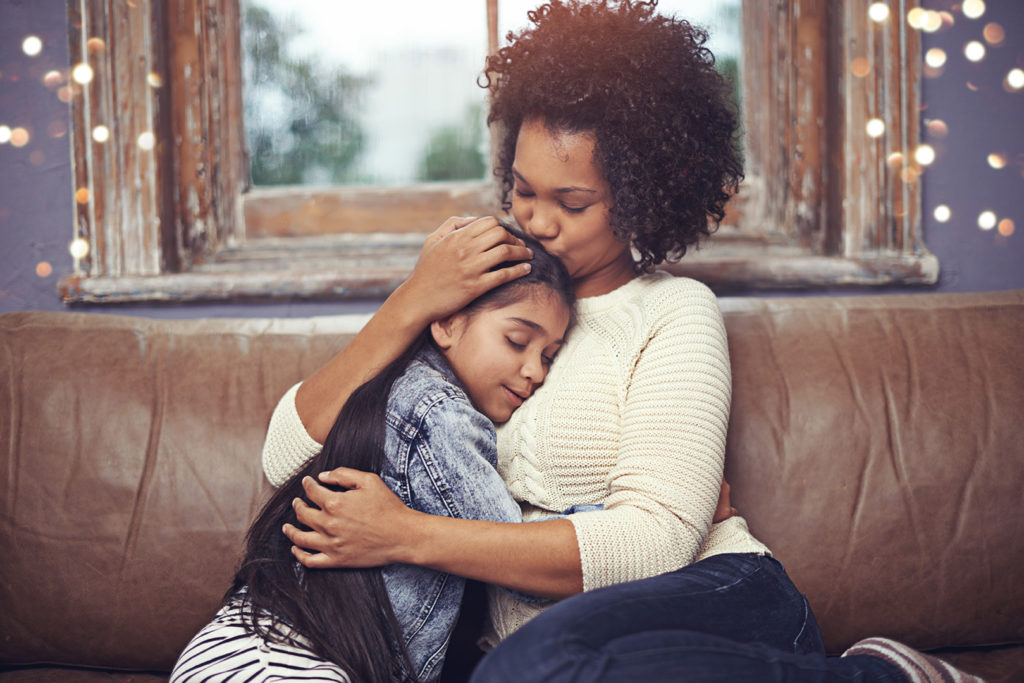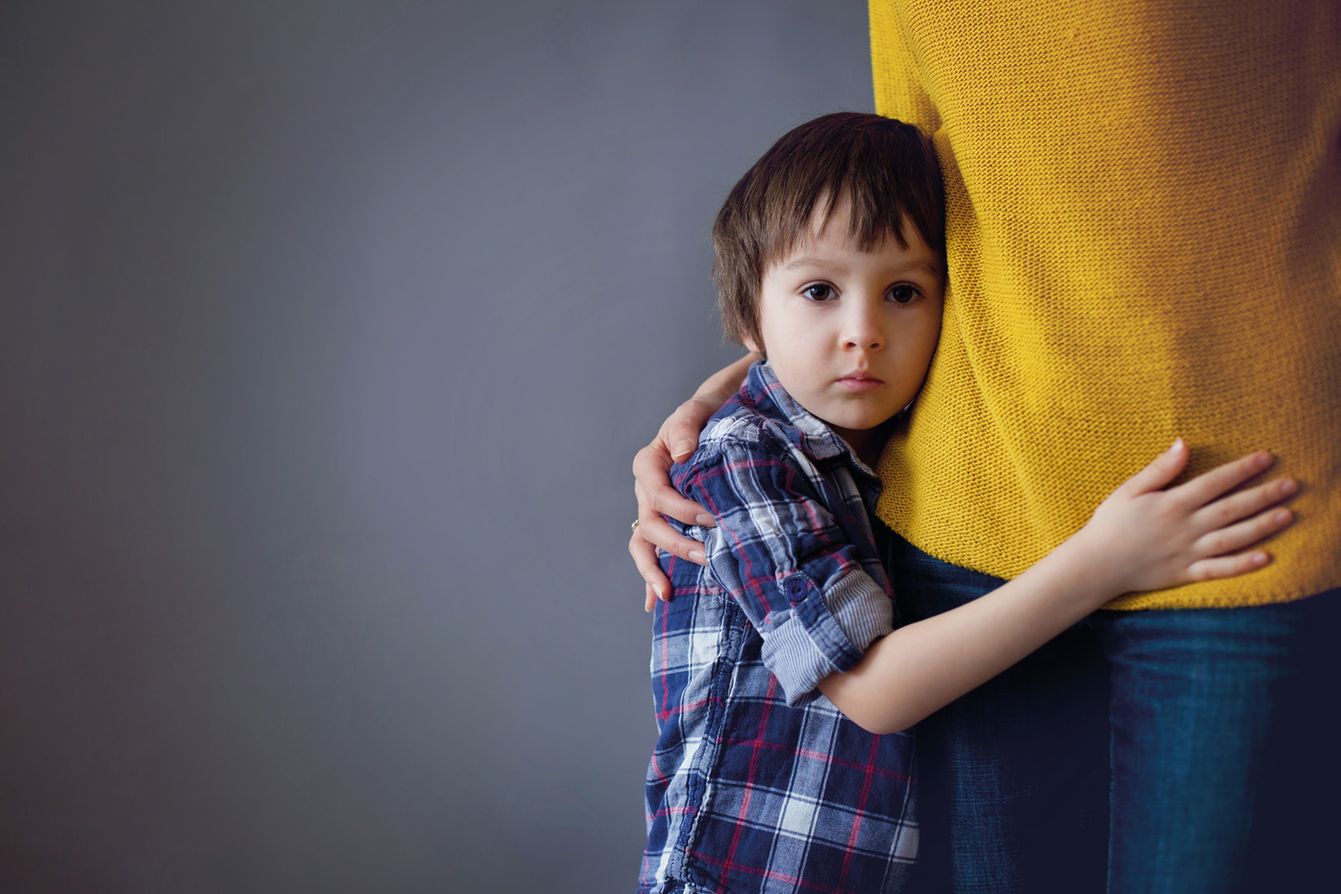Talking to our children about their emotional pain is just as important as treating their physical pain. Here are six things you can do to help them cope with rejection.
To this day I remember when Tiffany, my kindergarten best friend, moved interstate. I felt a sense of loss even though I didn’t know what to call it. Years later in high school, against my parents’ wishes, I started a relationship that spanned nine years. Too young for such a long relationship, the breakup was devastating. I could clearly see pain on my mother’s face as she tried to comfort me.
As parents, we never want to see our children hurt or cry. Yes, we want to raise resilient children, but we don’t want our kids to face pain unnecessarily. So how can we support our kids when they experience social loss or rejection? How do we talk to them about it?
Social loss or rejection is more than suffering heartbreak from a teen romance and can impact our children from a young age. Our kids may experience it in the form of a best friend moving away, the end of a friendship after a fight or the breakup of a fledgling relationship. The effects of all of these are even stronger with the onset of social media, where the drama can be intensified by cruel comments, unlikes, unfollows and unfriending.
In the face of our daily stress, we may be tempted to pass off what our children experience as insignificant or puppy love, but there are two reasons why we should treat their emotional pain as seriously as we would treat their physical pain.
Loss and rejection can be long-lasting
Rebecca Fraser-Thill, a child development specialist and psychology lecturer at Bates College in the US, says, “While physical wounds heal rather quickly, the psychological pain of social rejection can be long-lasting. This occurs because psychological pain can feel fresh each time the rejection is mentally relived.”
If it matters to them, it should matter to us
Author Catherine M Wallace aptly sums it up when she says, “Listen earnestly to anything [your children] want to tell you, no matter what. If you don’t listen eagerly to the little stuff when they are little, they won’t tell you the big stuff when they are big, because to them all of it has always been big stuff.”
The pain our kids experience in these moments is real and they’re watching our reaction. In fact, the way we react can signal to them how they should react. And the way we respond cues to them whether or not they should trust us in the future to care about the “little things”.
Most importantly, as we know from our own experiences of loss and grief, rejection can leave us feeling vulnerable and powerless. As parents, it’s our job to empower our kids and give them tools to navigate their feelings after experiencing a social loss.
Helping your child cope with rejection

Here are a few guidelines we can use as we help our kids wade through the murky waters of childhood friendships.
Before that, hear the strategies psychologist Collett Smart suggests we use when helping our children to cope with rejection.
1. Acknowledge their feelings because they are real
Some of the most basic human emotional needs are to feel seen, heard and understood. This is a moment when we can lean into our ability to confidently parent, without feeling the need for a psychology degree or the wisdom of a parenting book. In these moments, our kids simply want us to be present, listen, look them deeply in the eyes, acknowledge their feelings and empathise with them.
2. Help them understand that we are not our feelings
In her article “How to Talk to Kids about Big Feelings”, educator Jocelyn Greene of Child’s Play in Action suggests a good way to break the ice and prompt conversation about feelings is watching Pixar’s film Inside Out. The film cleverly follows the journey of a little girl who is battling all the emotions of moving away from the only home she has known.
In the film, she experiences joy, fear, anger, disgust and sadness. The themes in the movie will naturally prompt conversation, whether you’re watching with your little one or an adolescent child. However, in discussing our feelings, we should help our children understand that “we are not our feelings. Emotions are controlled by the brain. By simply identifying feelings we can get some calm and happiness where otherwise we were anxious”.
3. Help children gain control over their feelings by using games
In the same article, Jocelyn suggests several games to engage kids in the idea of releasing and communicating emotions. For example, get your child to identify the big feeling they’re experiencing and give the emotion a call on their “body phone” using a hand, foot, arm or whatever body part is handy (pun intended).
She provides a prompt such as “Hello Fear. What are you so worked up about?” or “Ring, ring. Hello excuse me, is Sadness there? I’d love to know what brought you out so loudly today.”
Using a silly role-playing scenario can allow a child to detach from the emotions and express them without feeling as though they’re making themselves as vulnerable. This will help them better cope with rejection when it really happens.
4. Build their self-esteem before the rejection happens
As parents, it can be scary to see our influence give way to that of our children’s friends. However, there is still a powerful way we can connect with our children and maintain a place of importance in their social circle.
One of the best ways to help our children cope with rejection happens before it even occurs. Authors Gary Chapman and Ross Campbell of The 5 Love Languages of Children explain that “Every child has an emotional tank, a place of emotional strength that can fuel [them] through the challenging days of childhood and adolescence. Just as cars are powered by reserves in the gas tank, our children are fuelled from their emotional tanks. We must fill our children’s emotional tanks for them to operate as they should and reach their potential.”
By instilling a healthy sense of self-esteem in our children, we can buffer them from the inevitable stings of social loss by giving them a firm sense of their value and their identity. Especially in the context of a Christian home, the concept of self-worth is built in by the value that Jesus Christ gives: that we are God’s heirs and unconditionally loved. This can never be taken away by the rejection of peers or the sneers of bullies. When this reassurance is consistently reinforced, it will last longer than the sting of rejection.
5. Help them understand the cycle of friendship and the balance of power in relationships
After years of experience as adults, we understand that friendships and relationships have cycles. Sometimes friendships are strong and sometimes they end. Though they are tough lessons to learn, we can turn the situation on its head and use it as an opportunity to teach our children in a healthy way about the cycle of relationships.
Similarly, we can show our kids how every relationship is built on a balance of power: a continuous cycle of giving and taking, pushing and pulling. Power in a relationship can come through giving your time, communication, emotion and yourself. At this time of social loss, help your child see that while they may feel vulnerable and powerless, they are in control of how much of their time, communication, emotion and themselves they continue or discontinue to give to the friendship. This will help them maintain a sense of respect for themselves and the other person while teaching them they don’t remain powerless in situations like this in the future.
6. Find moments for fun and playfulness to counter the effects of social media reaction with real world reaction
As adults who didn’t have the (dis)pleasure of growing up with social media, it can be hard to understand its impact. However, finding moments for fun and playfulness with your children can counter the effects of social media. In their book Growing Up Social, Gary Chapman and Arlene Pellicane suggest that “Every child is asking the question, ‘Do you like me?’ ”By limiting [their] social media, you will help your child find the answer in real people who can shower [them] with affection instead of an online community that can be fickle and cruel.”
You can help your child cope with rejection
As we spend time with our kids, it should be filled with fun, laughter and playfulness that will counter any negative messages the world may throw at them when they’re outside of the safe cocoon of our homes.
Although we never want to see our children hurt or cry, we know that social loss and rejection are inevitable. May we raise kids who are empathetic, sensitive and resilient to whatever life throws at them. And may we know when to step in, when to step back and when to stand confidently in the knowledge we have empowered our children with tools to navigate the murky waters of childhood friendships.
How helpful was this article?
Click on a star to rate it!
5 / 5. 3
Be the first to rate this post!
Rachel Lemons Aitken
Related posts
Subscribe
Receive personalised articles from experts and wellness inspiration weekly!


